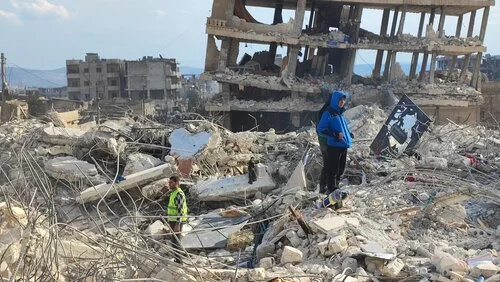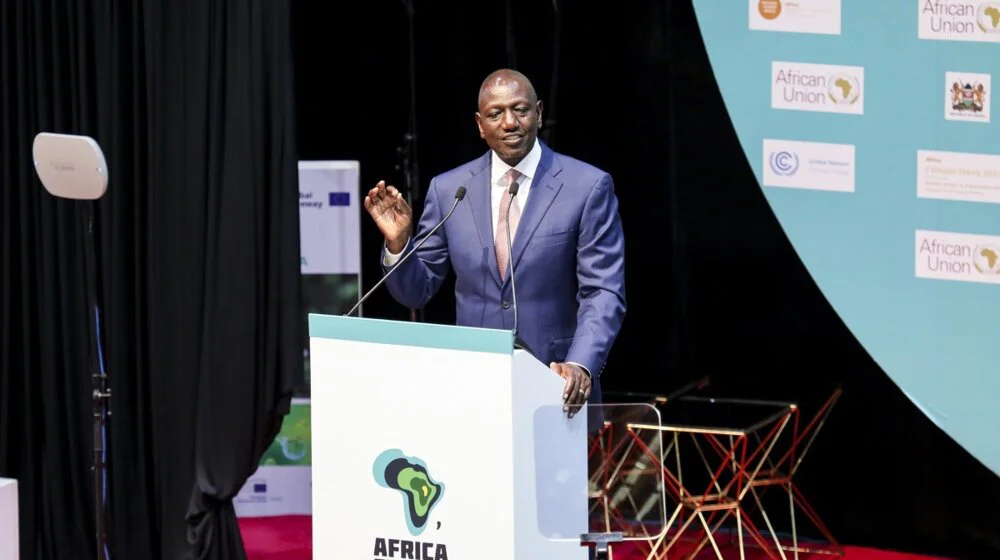Since taking office as U.S. President, Donald Trump has not stopped threatening the world with tariffs. In his latest letters addressed to European Commission President Ursula von der Leyen and Mexican President Claudia Sheinbaum, he announced that the U.S. would impose a 30 percent tariff on goods from the European Union and Mexico, effective August 1.
As with some earlier letters, he published this one on his social network Truth Social.
“Mexico has helped me secure the border, but what Mexico did isn’t enough,” Trump wrote in the letter to the President of Mexico, according to Forbes BiH.
The EU didn’t take long to respond
He emphasized there would be no tariffs on EU goods if the bloc of 27 countries “or companies within the EU choose to build or manufacture products within the United States.” The EU collectively sells more to the U.S. than any single country.
The EU’s response came quickly. The bloc announced it was ready to respond to Trump. “We will take all necessary steps to protect the EU’s interests,” said European Commission President Ursula von der Leyen, adding that the EU was ready to continue discussions with the U.S. while also considering “proportional countermeasures.”
“We will take all necessary steps to protect the EU’s interests,” von der Leyen said, according to Politico, noting that five EU diplomats confirmed that ambassadors would meet on Sunday for urgent talks ahead of the bloc’s trade ministers’ meeting in Brussels on Monday.
Introducing a 30 percent tariff on EU exports would disrupt key transatlantic supply chains, harming businesses, consumers, and patients on both sides of the Atlantic, according to some predictions. But does Trump even care? The answer remains unknown, just as it is unclear what exactly he wants from Europe.
Trump: “I like to think big”
“I like to think big. To me it’s very simple: if you’re going to be thinking anyway, you might as well think big,” he wrote in his book “The Art of the Deal.”
Since entering the White House for a second term, he has signed more executive orders than any of his predecessors, but he is also the president whose administration has faced the highest number of lawsuits. U.S. states are suing over global tariffs; immigrants are suing because he is trying to deport them; universities are protesting because their voices are being silenced... The list is long.
From Europe, or rather Denmark, it seems he no longer wants Greenland – or perhaps he only paused amid more urgent tariff issues – and he no longer mentions making Canada the next U.S. state.
Criticizing American foreign policy is nothing new for Trump. Back in 1987, he paid for a full-page ad in The New York Times, The Washington Post, and The Boston Globe. It was an open letter to Americans in which he claimed the U.S. was spending money protecting allies who “can afford to defend themselves.”
A paid ad from the eighties
“Let Japan, Saudi Arabia, and others pay for the protection we provide as allies. Let’s help our farmers, our sick, our homeless by taking something from some of the most profitable machines ever created – machines that we created and nurtured. ‘Tax’ these wealthy nations, not America. Let’s end our huge deficits, cut taxes, and allow the American economy to grow unburdened by the cost of defending those who can easily afford to pay us for protecting their freedom. Let’s not let our great country be laughed at anymore,” part of the letter said, which has resurfaced after his many presidential orders.
Today, just as then, he demands that NATO member states spend five percent of their GDP on defense. The only one who opposed this proposal was Spanish Prime Minister Pedro Sánchez, who, at the NATO Summit in The Hague last month where Trump was also present, said that Spain did not intend to spend five percent of GDP on defense, repeating it would allocate 2.1 percent.
Jason Furman, a professor in Harvard University’s Department of Economics, concluded that the trade war could harm the U.S. economy much more than Europe’s. The reason, he says, is that the United States is now in conflict with virtually every country in the world, while Europe faces significant problems only in trade with the U.S.
How the trade war could end
“If an agreement only reduced tariffs, it would be technically easy to reach a quick deal; the benefit to both economies would be relatively small but still worthwhile. For that to happen, the United States would have to be willing to drop its ten percent general tariffs. More significant benefits could come from deeper integration like the Transatlantic Trade and Investment Partnership (TTIP) that was negotiated ten years ago. Still, I don’t see much indication this is Trump’s ultimate goal; negotiations could take years and remain politically controversial even in major European exporting powers like Germany a decade ago,” he writes, among other things.
“Another possibility that seems to be gaining traction – though it could change at any moment – is that the primary U.S. demand isn’t more market access for American companies operating in Europe but rather reducing European economic integration with China. In some ways, this aligns with growing European skepticism toward economic integration with China. Last year, for example, the European Union mirrored Biden’s high tariffs on Chinese electric vehicles with its own very high tariffs. However, there is a limit: Europe’s total trade exposure to China, exports plus imports, was €740 billion last year, about the same magnitude as its trade exposure to the U.S. of €850 billion. Perhaps more importantly, Europe – or some European countries – is significantly more open to Chinese foreign direct investment than the U.S. And foreign direct investment could be the biggest U.S. concern if it’s trying to patch holes in its Chinese tariff regime,” Furman notes.
The trade war remains a key topic whose end is still not in sight. When it will end is known only to Trump. But one unanswered question remains – what does he really want from Europe, Mexico, and others?











